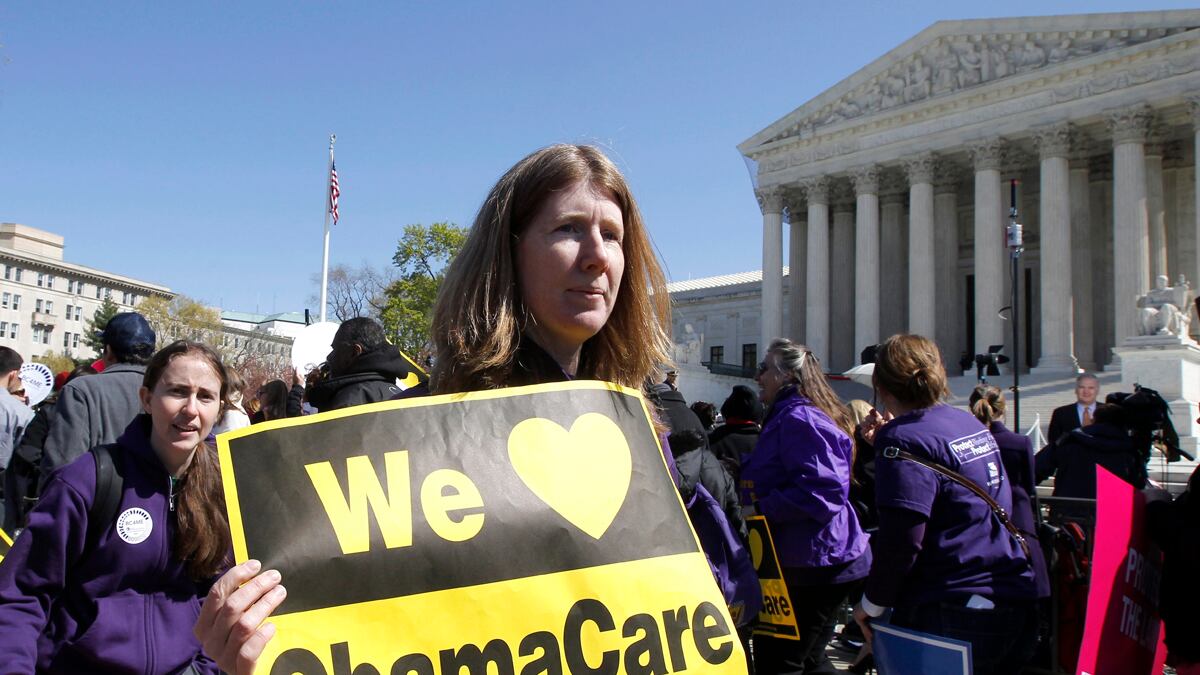Although the Affordable Care for Americans Act has been law for over a year, it is still controversial: almost every poll shows that 43 percent of Americans approve of it, 43 percent disapprove, and 10 percent don’t know what to think. Having just finished reading it, that’s exactly how I feel.
I’m a doctor, and for 21 years I’ve practiced medicine at a very unusual hospital. With almost 1,200 patients, Laguna Honda Hospital was originally the San Francisco Almshouse, and in a way it still is. The almshouse was how we used to take care of those who didn’t have health insurance. Every county had a free county hospital for the acutely ill, and a free county almshouse for everyone else who needed care.
Beginning in the 1950s, however, first the county almshouses and then the county hospitals were closed, for reasons of economy (as demanded from the right) and social justice (as demanded from the left), until San Francisco was just about the only county with the old system intact. Over the years I was impressed by just how good it was. True, it exemplified a two-tiered approach, but we always had some place to send people, and people always had some place to go. Which was why I wanted to understand how the ACA’s new way of taking care of the uninsured is going to work.
There is a lot to like about the act, especially its general ideas: that people should not lose their insurance when they get sick; that insurance companies should spend 85 percent of their revenue on patient care; that counties should take care of their sick poor. But as I read, I began to get cold feet.

The health-care law is not one law but hundreds of laws, mandating thousands of new regulations, hundreds of new reporting tools, and countless new departments, divisions, and committees. There are laws about the minority workforce and oral-prevention activities, about elder justice and buying trailers for clinics. Each of the new laws requires hundreds of supplemental pages to detail. (The final Rule for Section 3022, implementing the “Accountable Care Organization,” is 696 pages long.) And some of the best ideas are undercut in the details, so that insurance companies don’t really have to spend 85 percent of their revenue on patients. The more I read, the more the ACA struck me as a portmanteau of social-justice initiatives and compromises with the insurance and drug companies, having little to do with insuring all Americans.
What will happen to our health-care system when all those new regulations and mandates come online? Because whatever else you can say about our health-care system, as a way of taking care of you when you get sick, it does an amazing job. When was the last time you saw anyone wandering the streets with an unfixed broken leg or clutching their abdomen because of appendicitis?
As I neared the end of its 902 pages, the ACA started to remind me of a patient of mine. Mrs. Ross was very tiny, very old, and quite demented, though she’d retained her manners, inquiring after my health and thanking me at the beginning, middle and end of all our talks. She was also a very good walker and went through a pair of running shoes every month. Eventually, though, she fell and broke her hip, and we had to send her to the acute hospital, where her hip was repaired and she came back to us. Except now she was comatose. Some overenthusiastic intern had decided to treat her mild hypertension, prediabetes, possible osteoporosis, likely gastroesophageal reflux disease, and high cholesterol—all at once.
It took us a while to get Mrs. Ross walking again. And what I am afraid of, now that I’ve finished reading the ACA, is that it will do to our medical system what that well-intentioned intern did to Mrs. Ross. And worse: according to a recent analysis in Health Affairs, even if all its regulations are put into effect, the ACA will still leave 23 million Americans uninsured.
I can’t help but reflect on the imperfect but good-enough system I’ve known in San Francisco, and wonder what would happen if we turned it back on nationwide— reinstituted a county hospital and a county almshouse in every county in the country. They wouldn’t be fancy, but they would be free, and anyone could go—even the rich—as long as he or she was willing to take a number and sit on a bench.
Most likely those free hospitals would be used as they always were, mainly by the poor, while everyone else had the security of knowing they would not face bankruptcy if they lost their insurance.
Or perhaps not. Perhaps they would be inundated by patients who, preferring a good if imperfect system, voted with their feet. What then? Then we would have a real solution to our health-care crisis. Because the for-profit system would have no choice but to do a better job than the free county system, or it would simply disappear.





